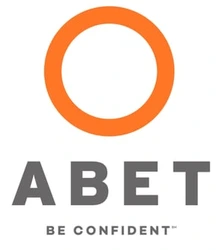
ABET Accreditation
The Bachelor of Science in Systems Engineering program, Bachelor of Science in Industrial Engineering program and Bachelor of Science in Engineering Management program are accredited by the Engineering Accreditation Commission of ABET, abet.org.
Accreditation by ABET is an assurance that the program meets the quality standards of the profession for which it prepares graduates.
These standards include objectives and outcomes defined by the faculty with input from the department’s industrial advisory board and from alumni.
Industrial Engineering Program Educational Objectives
- Objective 1: Technical Proficiency. Graduates integrate mathematics, physics, engineering science, operations research, applied probability and statistics, manufacturing technology, production planning, and computer simulation to model, analyze, and improve industrial systems and processes at various scales.
- Objective 2: Professional Growth. Graduates develop a sense of social responsibility and exercise their capabilities for life‐long learning as means to enhance their technical and social skills.
- Objective 3: Leadership Skills. Graduates create inclusive and innovative environments by developing and refining their leadership, communication, and overall professional skills to achieve maximum efficiency in a team setting.
Systems Engineering Program Educational Objectives
- Objective 1: Technical Proficiency. Using basic science, computer simulation and software, and systems engineering methods, graduates define and execute design, development, integration, verification, validation, deployment, sustainment, and retirement strategies to successfully realize systems that require the integration of diverse disciplines in complex environments.
- Objective 2: Professional Growth. Graduates develop a sense of social responsibility and exercise their capabilities for life‐long learning as means to enhance their technical skills and collaboration in a diverse and inclusive work environment.
- Objective 3: Leadership Skills. Graduates create inclusive and innovative environments by developing and refining their leadership, communication, collaboration, interpersonal skills, teamwork, and cooperation to achieve maximum efficiency in a team setting.
Visit the College of Engineering’s ABET page for a full description of degree program objectives and student outcomes.
About ABET
ABET accredits college and university programs in applied and natural science, computing, engineering and engineering technology.
ABET accreditation is the culmination of continuous self-assessment and improvement, and assures that ABET-accredited programs meet the needs of students and their chosen professions while preparing graduates to enter the professional world.
Value Assured
Accreditation criteria focus on what students experience and learn. ABET’s voluntary peer-review process is highly respected worldwide because it adds critical value to academic programs in the technical disciplines, where quality, precision and safety are of the utmost importance.
ABET has 2,200-plus experts from industry, academia and government who provide quality assurance by serving as program evaluators, commissioners, board members and advisors. ABET is a nonprofit, nongovernmental organization recognized by the Council for Higher Education Accreditation.
